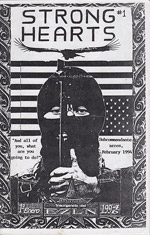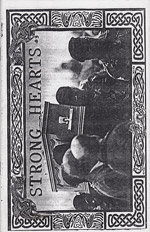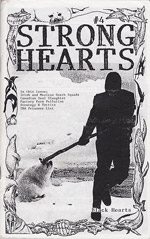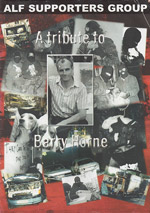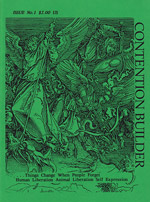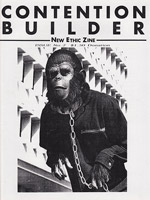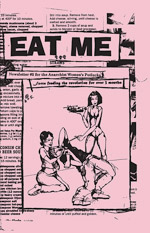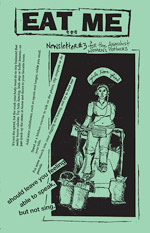Live Wild or Die #1-3
Live Wild or Die # 1-3 (Published in various locations along the west coast of the United States, 1989-1990s?)
Edited by rotating teams of anarchists and espousing an anti-civilization perspective a decade before the rise of Eugene’s primitivists, Live Wild or Die was the most radical environmental journal of its time, and perhaps, of all time. Featuring articles with names like “The Eco-Fucker hit list,” which “wise use” guru Ron Arnold later erroneously claimed to have inspired Ted Kaczynski’s choice of targets, LWOD presented an uncompromising vision of a future without industrialism and domestication brought about by train hopping tree spikers, nomadic punk hunt saboteurs, and feral warriors. It was exciting, naive, inspiring, and sometimes a little bit stupid. Still, flipping through it’s over-sized, busily decorated pages you can not help but feel the optimistic spirit of that era. Earth First!ers and animal liberators, monkey wrenchers and black clad messengers run wild across the pulp, heralding a revolution to free the world of exploitation, drudgery, brutality and boredom. Cries for the destruction of corporate property vie for attention alongside snarky comic strips, screeds against new age pseudo resistance, and now un-distributable diagrams for building incendiary devices. The authors believed in their hearts that something better was on the horizon if they could fight hard enough to get there. That deep and passionate longing for utopia is all but dead nowadays, washed away by delusions of “Hope” and “Change” at the ballot box and a green consumerism that only takes us deeper into the pit of shallow lives and dying eco-systems. But somewhere out there I am betting that there are a few young people who pine for a planet that is joyous and just, and I hope they smile, conspiratorially, when they see what the generation who made LWOD was planning.
 |
 |
 |

